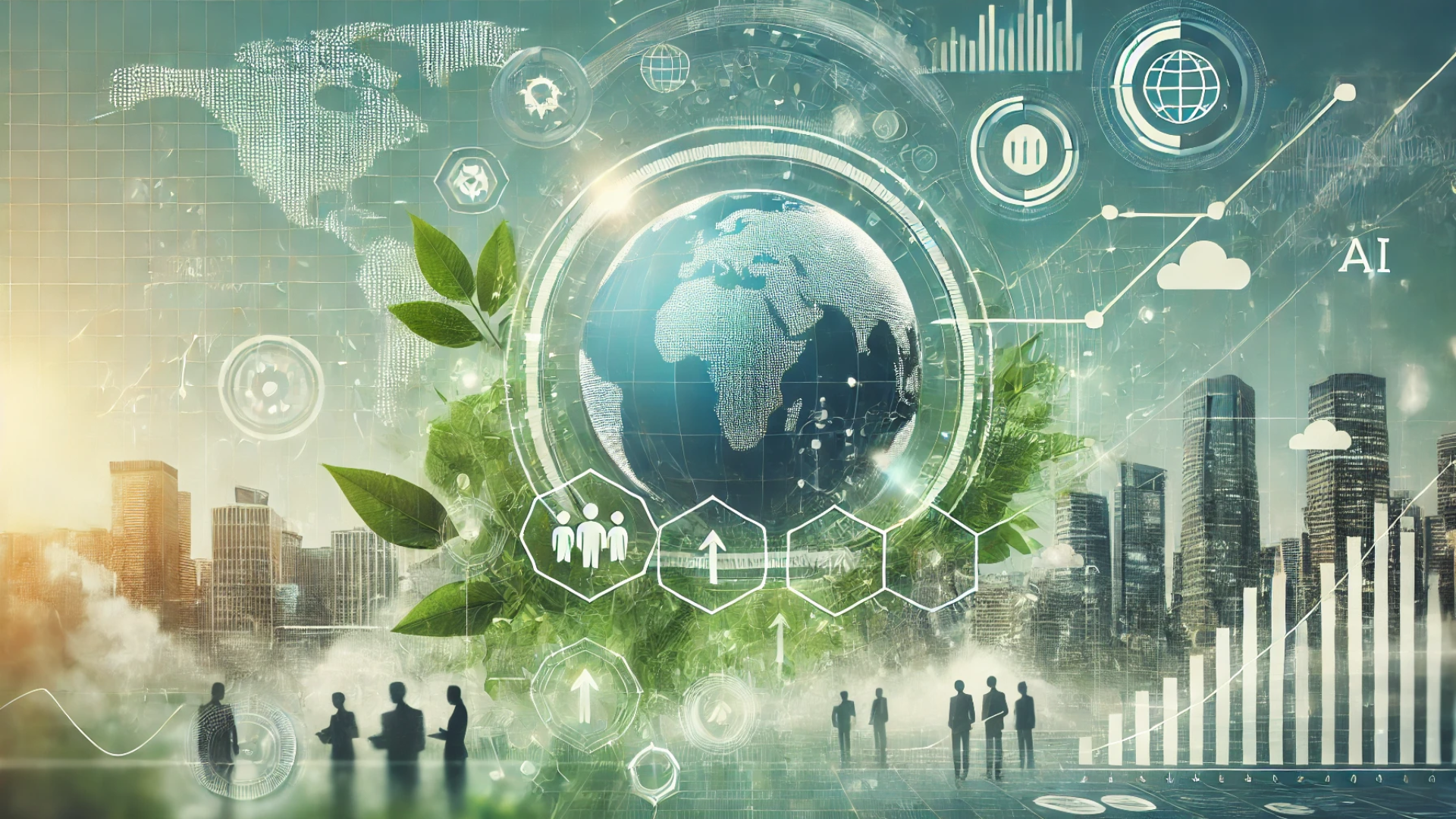Unlock Triple Bottom Line Success: Optimize Your Investments with AI and Experimentation
by Liezel van Rooyen | Dec 17, 2024 | AI Transformation, People Planet Profit, AI for Sustainability

In a world where businesses are expected to balance profitability with environmental and social responsibility, the Triple Bottom Line—People, Planet, Profit—has become the gold standard for sustainable success. But how can organizations ensure their investments are strategically aligned to deliver meaningful outcomes across all three pillars? The answer lies in using Artificial Intelligence (AI) to build and run structured experiments.
This blog explores how AI and experimentation are revolutionizing investment strategies, allowing businesses to maximize returns, minimize risks, and achieve balanced sustainability goals. By integrating these approaches, your organization can take actionable steps toward a smarter, more sustainable future.
The Triple Bottom Line: A Framework for Success
The concept of the Triple Bottom Line, popularized by John Elkington, redefines business success by including social and environmental outcomes alongside financial performance. It asks organizations to think beyond profit margins and focus on their broader impact.
- People: How are you supporting employees, customers, and communities?
- Planet: Are your practices minimizing environmental harm?
- Profit: Are you achieving financial growth in a sustainable way?
.png?width=400&height=374&name=Unlock%20Triple%20Bottom%20Line%20Success%20with%20AI%20(5).png)
Balancing these three pillars is a challenge, but AI and experimentation provide the tools to turn goals and objectives into measurable outcomes.
AI: The Engine for Data-Driven Decisions
AI plays a transformative role in Triple Bottom Line success by providing insights that help businesses optimize processes, identify opportunities, and mitigate risks.
Real-Time Analytics for Operational Excellence
AI enables organizations to monitor operations in real time, uncover inefficiencies, and identify opportunities for improvement. For example, AI-powered supply chain analytics can reduce waste and emissions while lowering costs.
Predictive Modeling for Informed Decision-Making
With predictive analytics, businesses can anticipate outcomes and align their strategies accordingly. For instance, forecasting customer trends enables companies to refine offerings and reduce overproduction, balancing environmental and financial impact.
Personalized Employee and Customer Engagement
AI tools can analyze employee sentiment to improve workplace policies or assess customer behavior to deliver tailored experiences. These actions boost satisfaction while ensuring organizational goals are met.
Experimentation: Validating Ideas Before Investment
.png?width=800&height=450&name=Unlock%20Triple%20Bottom%20Line%20Success%20with%20AI%20(7).png)
Even the best AI insights can fail if organizations invest in solutions that don’t align with their goals. This is where structured experimentation comes in.
As Alberto Savoia explains in The Right It, experimentation helps businesses test ideas early and refine them before full-scale deployment. By simulating real-world scenarios, companies can identify the most viable strategies for achieving their Triple Bottom Line goals.
Why Experimentation Matters:
- Minimizes Risk: Test solutions on a small scale before committing resources.
- Enhances Alignment: Ensure initiatives support strategic priorities.
- Encourages Innovation: Create room for creative solutions that deliver impactful results.
Case Studies: AI and Experimentation in Action
Case 1: Reducing Environmental Impact with AI
A global manufacturing firm used AI-powered predictive analytics to optimize its production processes. By experimenting with small-scale adjustments, the company achieved:
- A 20% reduction in energy consumption.
- Lower operational costs.
- A measurable decrease in its carbon footprint.
Case 2: Workforce Empowerment Through Experimentation
A retail company piloted AI-driven employee scheduling software to address productivity challenges. Experimentation allowed them to refine policies, resulting in:
-
Improved employee satisfaction scores.
-
Enhanced operational efficiency.
-
A positive impact on employee retention.
Case 3: Boosting Profitability with AI Insights
A financial services firm deployed an AI-powered chatbot for customer service. Through experimentation, they tested responses and fine-tuned workflows, leading to:
-
A 30% reduction in response times.
-
A noticeable increase in customer satisfaction.
-
Significant cost savings on service delivery.
Access the Webinar Recording
Missed the live session? No problem! Unlock the recording of Unlock Triple Bottom Line Success with AI and Experimentation and gain valuable insights into how AI and structured experimentation can transform your business strategy.
🎥 What’s Inside the Recording?
-
Proven strategies to optimize investments for People, Planet, and Profit.
-
Real-world case studies showcasing AI-driven sustainable solutions.
-
Actionable steps to minimize risks and maximize returns.
📥 Download the recording now and start building a smarter, more sustainable future!


.png?width=800&height=450&name=Unlock%20Triple%20Bottom%20Line%20Success%20with%20AI%20(6).png)